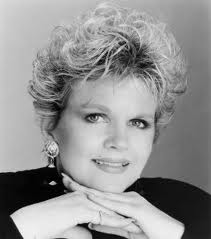I am considering no longer accepting payments by check….but some people still pay by check. What are my options?
 I’m assuming that you have had checks returned to you, which is (understandably) why you don’t want to continue to accept them. These days, it can be a little scary if someone wants to write a check, especially for a large purchase. However, many people, especially of older generations, still prefer to pay by check. You will likely offend them, possibly resulting in a lost sale, and their future business, if you don’t accept their preferred payment method willingly.
I’m assuming that you have had checks returned to you, which is (understandably) why you don’t want to continue to accept them. These days, it can be a little scary if someone wants to write a check, especially for a large purchase. However, many people, especially of older generations, still prefer to pay by check. You will likely offend them, possibly resulting in a lost sale, and their future business, if you don’t accept their preferred payment method willingly.
How can you avoid dealing with returned checks going forward? The only surefire way is to stop accepting them. Since we have already determined that might not be the best solution, here are a few more suggestions:
Get a check recovery service that will help you recover funds if you are issued a bad check. In other words, they do the dirty work for you. When a check is returned to your bank, it is sent to a recovery service, they reimburse the funds to you and start the collection procedures on the customer. The service is paid a pre-set returned check fee that’s charged to the customer.
If it’s a larger purchase, you may want to contact the customer’s bank to verify funds before accepting a check. More and more banks are offering the ability to convert paper checks to electronic checks or deposit them immediately with your mobile device.
Whatever you do, be sure to charge a sizable fee to customers to discourage bounced checks and to compensate you for your time and hassle of trying to recover the payment. If you go this route, be sure the returned check fee is clearly disclosed at the point of sale.
I’m planning on opening a gift shop by the end of the year. It will have about 1,500 square feet and will have Monday through Saturday, 9 to 5 hours. This will be my first store and I could use some advice, so I don’t have to learn the hard way. Do you have any tips on efficient staffing and scheduling? How many staff besides me should be in the store to help customers, operate the cash register, keep shelves stocked and neat, answer the phone, maintain the website, etc.? What’s the best way to schedule them to keep costs down but provide the level of customer service needed for success?
Until you have something to go by, staffing a new store will be a bit of trial and error. There are many factors that will go into effective staffing. You mentioned that it will be a gift shop. If there are other shops in the area, go talk to the managers andsee what they’re doing. They can give you valuable information about peak times, holiday traffic, and special events.
Then consider your product mix. Are your products self-explanatory, or will your sales associates need to educate customers on the items you sell? Will you offer extra services, such as free gift wrapping? Will you be in a busy location, such as a tourist hotspot, or will it be slow starting out? The biggest unknown is whether you plan to be working in the store, which I highly recommend, at least in the beginning.
Based on my experience, for that size store, assuming that you will be working most of the time, and that your products are a pretty easy sell, I would recommend starting with two employees.Understand that in the very beginning you could probably get by with no extra staff. But if you can swing it, plan to have an extra staff member there as well most of the time. That way, you can make sure that the associate receives proper training and you are relaxed and have plenty of time to meet and greet your new customers. Remember that first impressions are everything. Also, unless there is a compelling reason, I highly recommend changing your hours to 10 to 6.










